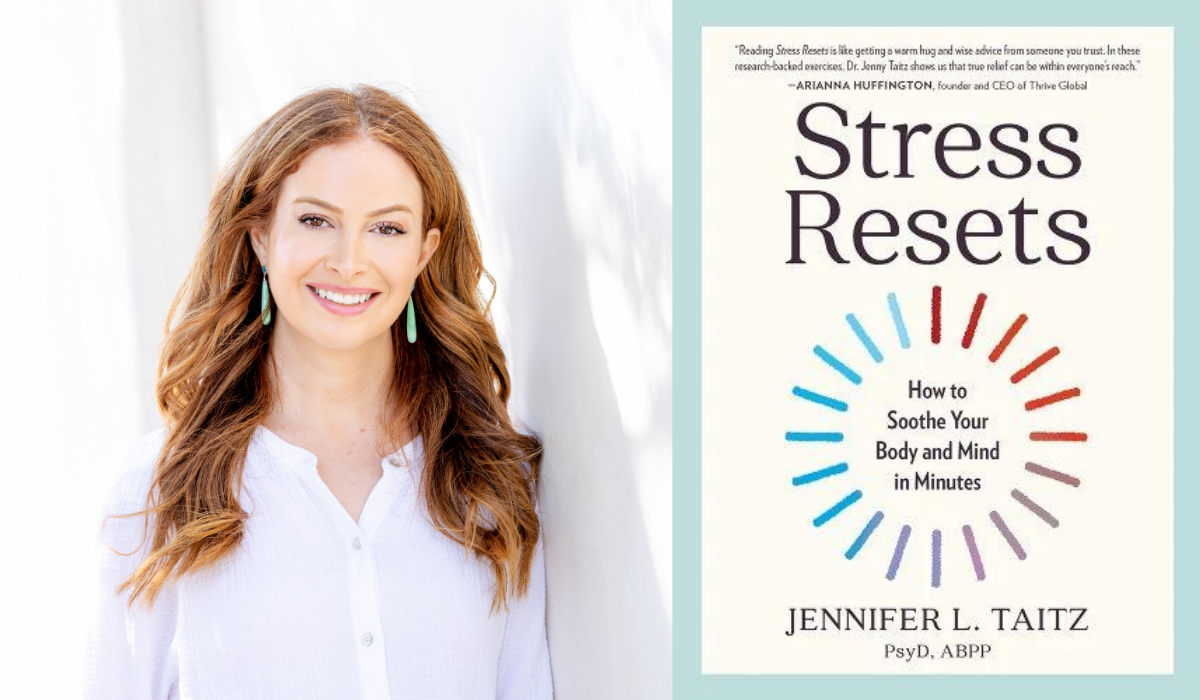Marriage, “Situationships,” or Happily Living the Single Life: Psychologist Jennifer Taitz on Finding Happiness, No Matter What Kind of Relationship You Want
Once upon a time, most people wanted one thing when it came to their romantic relationship: marriage. These days, millions of people aren’t in traditional relationships.
Americans are delaying marriage, and many are foregoing the institution altogether. In fact, according to the Pew Research Center, nearly 40 percent of adults in the U.S. aren’t partnered. Another poll just out this month found that while 55 percent of Americans prefer complete monogamy in their relationships, 34 percent describe their ideal relationship as something other than complete monogamy.
Jennifer Taitz, PsyD, a clinical psychologist and assistant clinical professor in psychiatry at the University of California, Los Angeles, says that no matter what you’re looking for, it’s possible to feel empowered to figure out—and go after—what you really want. This week, The Sunday Paper sat down with Taitz to find out how all of us can befriend the stress that so often comes hand in hand with our love lives so we can more clearly and confidently go after the kind of love we desire.
A CONVERSATION WITH JENNIFER TAITZ, PsyD
Can you speak to how difficult and stressful it can feel to be single—or in an alternative style of relationship—in a world that still urges or expects us to get married?
I think from an evolutionary perspective, a lot of people want a romantic partner. But these days, being on the dating apps can feel like a really bad game of musical chairs. There’s so much bad behavior, like ghosting and canceling dates at the last minute. If this is happening to you, I want you to know there's nothing wrong with you. You don't need to play games. You don't need to settle. You don't need to be a passenger in the car that someone else is driving. There are ways to strategically approach living your best life whether you’re in a relationship or not.
There’s a study that looked at more than 24,000 people over the course of 15 years, that found on average, marriage makes us just one percent happier. I wrote How to Be Single and Happy to help people reclaim their happiness while looking for a relationship.
Your happiness doesn’t have to stay on hold until you meet someone or get into the kind of relationship you want. If your life is going well but you're not finding love, try not to let that spill into not savoring the other areas of your life.
Your new book, Stress Resets, is filled with practices we can do to find more calm—fast. What’s one you’d recommend for those who are stressed about their love lives right now?
One of the things that tends to cause a lot of stress when it comes to our love lives is rumination. If you find yourself overthinking everything and venting, it can be all-consuming—and a dose of perspective can be really helpful.
One of my favorite stress resets that’s in both of my books is an exercise that prompts you to make a pie chart of your life. Reflect on and then list the areas of your life that matter most to you—health, friendships, family, personal growth, career, financial security, spirituality, hobbies, giving back. Imagine you had to fit these areas that matter to you into segments within a circle. How much relative weight would you give each facet of your life? What percentage goes to work versus health, for example?
Once you analyze and specify what matters to you and how much, you’ll have an easier time pushing annoying but relatively transient events—like a disappointing first date—out of your mind. It helps you zoom out to see the full picture rather than zooming in and magnifying a flaw.
Figuring out our love lives can often feel like a wild emotional ride—and a holiday like Valentine’s Day can amplify these emotions. How can we manage intense feelings when they surface?
Intense emotions have a way of convincing us that things will never get better. This might be why it can be so tempting to suppress emotions. But doing that can actually lead to emotions intensifying further.
I tell my patients to think of emotions as waves. Step back and observe your emotions without trying to block them or judging yourself. Pinpoint where you feel the emotions in your body. Now, imagine you are on a surfboard or a boat, staying balanced as the waves rise and fall. Remind yourself that emotions are like waves, coming and going. Practice staying with what is currently happening rather than predicting what you might feel in the future or reminding yourself of what you’ve felt in the past.
“Surfing the waves” of your emotions instead of judging them will help you see that you don’t need to run from your feelings or even take action. Once you sit with them, you’ll also find that they typically don’t last very long. I often joke with my clients that I can make you cry in two minutes. I can make you angry in two minutes. I can make you smile in two minutes. Emotions move quickly if you stay present with them.
Whether you’re dating or facing stress, peace of mind isn’t life feeling easy—it’s knowing you can cope regardless of what shows up in your life. And there are practical and powerful practices to improve your mindset and mood, even when so much feels out of your hands.

Jennifer L. Taitz, Psy.D, ABPP is a licensed clinical psychologist in New York and California and author of Stress Resets: How to Soothe Your Body and Mind in Minutes.
Please note that we may receive affiliate commissions from the sales of linked products.



